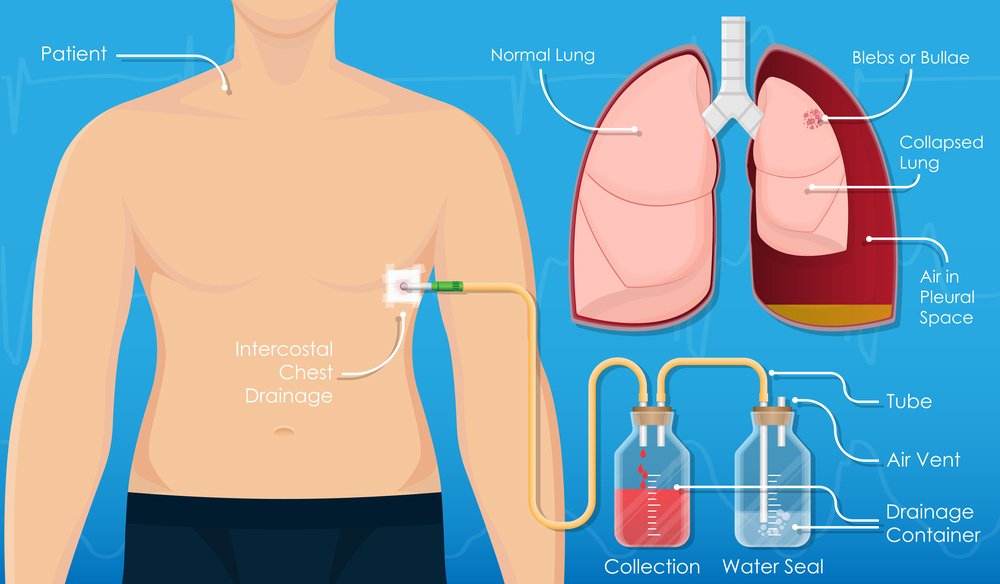
What is a Chest Tap (Thoracentesis)?
A chest tap, also known as thoracentesis, is a procedure used to remove excess fluid from the pleural space (the area between the lungs and chest wall). This fluid buildup, called pleural effusion, can cause shortness of breath and chest pain. Thoracentesis helps in relieving these symptoms and can also be used to diagnose the cause of the fluid accumulation.
What is Chest Tube Drainage?
Chest tube drainage is a procedure where a tube is inserted into the pleural space to continuously drain air, blood, or fluid. This technique is critical in cases of pneumothorax (collapsed lung), hemothorax (blood in the pleural cavity), or recurrent pleural effusion. It helps re-expand the lung and allows proper breathing.
When are These Procedures Needed?
- Thoracentesis: This procedure is often performed when there is a need to diagnose or treat pleural effusion caused by conditions such as pneumonia, heart failure, lung cancer, or infection.
- Chest Tube Drainage: Commonly used after surgeries or trauma that leads to air or fluid in the pleural space, chest tube drainage helps manage critical respiratory conditions like pneumothorax and empyema (infected pleural fluid).
Procedure Overview
Thoracentesis: A needle is inserted through the chest wall to remove fluid for diagnostic testing or relief. The procedure takes around 10-15 minutes and is generally well tolerated.
Chest Tube Drainage: A small incision is made, and a flexible tube is inserted into the chest to continuously drain the fluid or air. This procedure requires more extended monitoring and is often accompanied by chest X-rays to ensure proper lung re-expansion.
Risks and Complications
- Thoracentesis: Minimal risks include pain at the insertion site, infection, or, in rare cases, pneumothorax (collapsed lung).
- Chest Tube Drainage: Possible complications include infection, tube blockage, or lung injury. Proper management and care reduce these risks significantly.
Recovery and Aftercare
After thoracentesis or chest tube placement, patients are usually monitored for a short period. Regular follow-ups ensure that no additional fluid or air accumulates, and the lung remains healthy. Your doctor will provide specific instructions based on the underlying condition and procedure.
Expert Care for Thoracentesis and Chest Tube Drainage
At Dr. R. Aditya Vadan’s clinic, we offer expert care for managing pleural effusions, pneumothorax, and other lung conditions requiring thoracentesis or chest tube drainage. Our team ensures that you receive personalized care with the utmost focus on safety and recovery.
For more information or to schedule a consultation, please contact our clinic at 9063564499, 95507 77000.